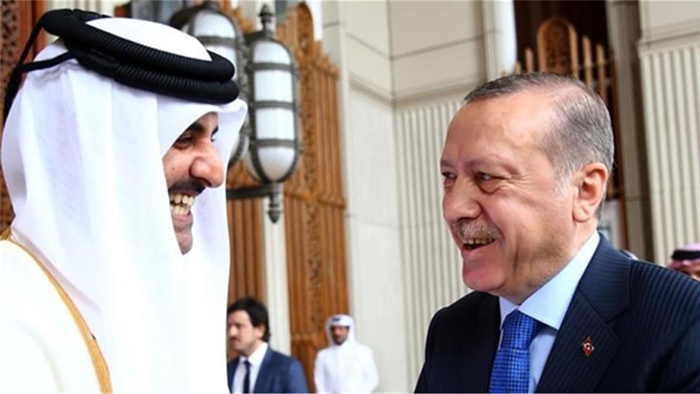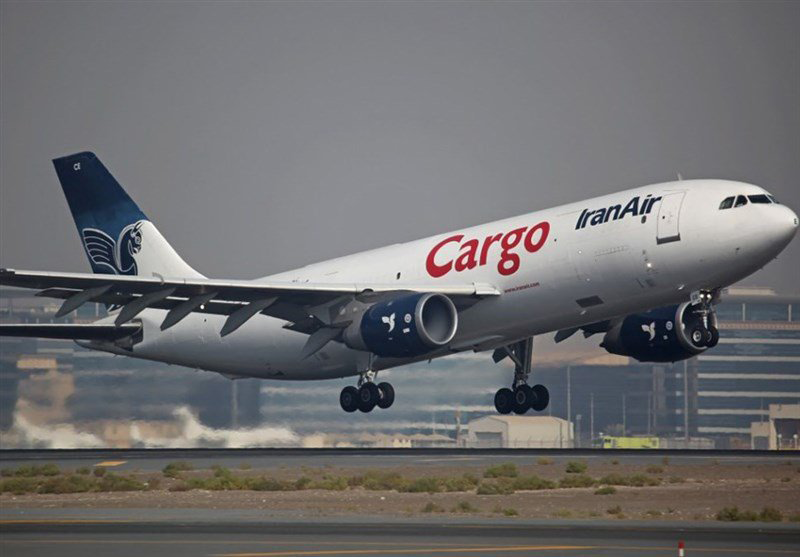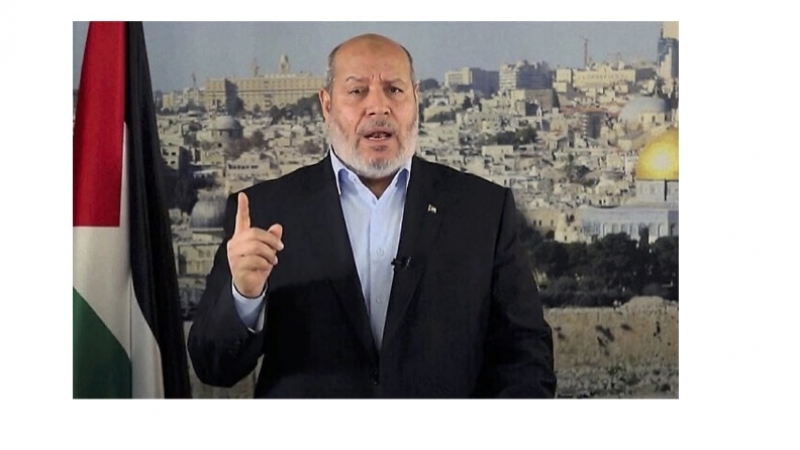Bedouins at war!
Qatar in the crosshairs
Developing Just LeadershipZafar Bangash
Shawwal 07, 1438 2017-07-01
Main Stories
by Zafar Bangash (Main Stories, Crescent International Vol. 46, No. 5, Shawwal, 1438)
The Saudi-Qatari spat is neither about Qatar supporting terrorism, nor about its support of the Muslim Brotherhood, or even its non-hostile relations with Iran. True, crude Bedouin mentality has a lot to do with the nasty brawl between Bani Saud and al-Thanis in Qatar, but a much bigger game is being played out. At the root lies Bani Saud’s demand that all regimes in the region submit to their diktat. Those falling out of line will face the Najdi Bedouins’ wrath.
The Najdi Bedouins may be living in air-conditioned palaces with marble-tiled floors and extravagant drapes today but at heart they remain Bedouins. Crudity is in their genes. After all, would a pig become a beautiful woman even if it were dressed in fancy clothes with massive amounts of lipstick splashed on it? It remains a pig: filthy and smelly.
Led by the brash Defence Minister Muhammad bin Salman, Bani Saud have declared war on tiny Qatar to bring it into line. Saudi client regimes — the United Arab Emirates (UAE), Bahrain, Egypt, Maldives (the archipelago of sinking islands!), Mauritania, and the joke government of Libya — were also forced to follow suit. When cash-strapped Tunisia demurred, Bani Saud threatened to cut off their bakhshish.
The Najdi Bedouins accuse the Qataris of supporting terrorism! It is like the prostitutes of Paris accusing the English Collective of Prostitutes of indulging in immorality. True, Qatar has been supporting and financing terrorists in Syria and Iraq but Bani Saud are no better; they are guilty of much bigger crimes. All terrorist activities worldwide can be traced directly to Saudi Arabia. The Najdi Bedouins provide ideological support, funding, and weapons to the terrorists. The Saudis also fund madrasahs in such places as Pakistan, India, Bangladesh, Malaysia, and Indonesia churning out terrorists by the thousands.
It is not terrorism per se that Bani Saud object to; after all Saudi Arabia is a terror factory. Qatar’s real sin is that it has been supporting the Muslim Brotherhood, which the Saudis, Egyptians, and Emiratis have targeted. While the Najdi Bedouins consider all non-Wahhabis as “heretics” — the overwhelming majority of Sunnis have returned the compliment by declaring that the Wahhabis are not part of Ahl al-Sunnah wa-al-Jama‘ah (see the declaration of some 200 Sunni ‘ulama’ at the Islamic Conference in Grozny, Chechnya on August 25–27, 2016) — the Qataris are more tolerant of non-Wahhabis.
Further, Qatar refused to abide by the nonsensical “Riyadh Declaration” that the Saudis claimed Muslim rulers had “debated and agreed to” in Riyadh on May 22 during Donald Trump’s visit. No such debate ever took place, much less any of the assembled rulers agreeing to it. This so-called declaration was an act of war against Islamic Iran. Many rulers were surprised to learn about it from the media!
The Qataris see the Saudi move as an attempt at regime change. Saudi and UAE lobbyists are involved in a massive disinformation campaign against Qatar. Political commentator Pepe Escobar, writing in Sputnik (his article was reproduced in Information Clearing House on June 7, 2017) pointed out,
…a trail of evidence points to a concerted strategy elaborated by the Israeli lobby (via the Foundation for Defense of Democracies, founded, among others, by nefarious casino schemer Sheldon Adelson, and very close to… Net-anyahu); US neocon/Ziocon/ neoliberalcon elements; and the UAE ambassador in Washington, Yousef al-Otaiba.
Leaked emails have shown how Otaiba — widely idolized in the Beltway because of his “largesse” — and the neocon Foundation for Defense of Democracies have discussed means of teaching Qatar a lesson for its support of Hamas, and overall non-confrontational policies towards Iran.
Otaiba also happens to be close to Jared Kushner — which would explain Trump’s reaction to the anti-Qatar blitzkrieg.”
Immediately after the Saudis’ anti-Qatar announcement, Trump resorted to his customary tweets saying his Riyadh policy was yielding results. He later tried to soften the message by inviting the various parties for a meeting at the White House to resolve the dispute. The Qatari ruler, Tamim bin Hamad al-Thani saw this as a trap and refused to leave Doha fearing he would not be able to return. A Saudi puppet would instead be installed to replace him with the help of 10,000 US troops stationed at al-Udeid air base in Qatar.

In the immediate aftermath of Saudi announcement on June 5 — an unfortunate choice of date since it coincided with the Zionist war of aggression exactly 50 years ago against Egypt, Syria, and Jordan in June 1967 — the Qataris worried about more than mere diplomatic isolation. Since Qatar receives most of its food shipments via Saudi Arabia, these were blocked. In a deft move, Turkey and Iran both announced that they were willing to help Qatar with its food and water imports. Both have sent plane-loads as well as ships delivering much needed food and water, The Qataris have also been seeking help from Russia.
While initially remaining neutral, Turkey’s President Recep Tayyip Erdogan later made a crucial decision to side with Qatar. On June 7, the Turkish parliament passed a bill allowing deployment of up to 20,000 troops in Qatar. Two days later, Erdogan signed the bill into law. Turkey already has 600 troops stationed in Qatar. Whatever the size of the new deployment, it places Ankara squarely on the side of Doha and against Bani Saud.
Qatar’s shift toward the Russia-Iran-Turkey axis is what has aroused great anger in Riyadh. While the three — Russia, Iran, and Turkey — are not on the same page on all issues, there is convergence of thought on some matters. For instance, Russia and Iran are on one side of the Syria crisis while Turkey and Qatar are on the opposite side, but Qatar and Iran also share a common gas field in the Persian Gulf. One of the reasons for the war on Syria was related to the location of the gas pipeline to Europe going via Syria. The US, Turkey, Saudi Arabia, and Qatar, however, wanted to install a puppet regime in Damascus first. The aim was, together with the Saudi-led drop in oil prices, to undermine Russia. The result has been immense bloodletting in Syria without the conspirators succeeding in their nefarious design.
Qatar is the world’s leading exporter of liquefied natural gas (LNG). Given its tiny population (200,000 natives) and another two million expatriates, Qatar has amassed enormous wealth. This has enabled Doha to punch way above its weight in international affairs, much to the consternation of Bani Saud. Qatar’s refusal to join the US-Zionist-Saudi led anti-Iran crusade has further riled up Bani Saud.
When the Saudis first declared war on Qatar, there was panic in Doha. Qatari Foreign Minister Mohammed bin Abdulrahman al-Thani announced that his government wanted to resolve the crisis through dialogue but Bani Saud wanted surrender, not talks. Saudi Deputy Crown Prince Muhammad bin Salman issued a laundry list of demands including shutting down al-Jazeera, immediate end to support not only of the Muslim Brotherhood but also of Hamas, which the Saudis now consider a “terrorist” organization because it opposes Saudi ally Zionist Israel (Hamas leaders, please note!). Most importantly, the Saudis want the Qataris to terminate all relations with Tehran.
The panic in Doha eased somewhat when a number of countries among them Turkey, Iran, and Russia offered to help. On a visit to Paris on June 12, Qatari Foreign Minister Shaykh Mohammed bin Abdulrahman al-Thani told reporters, “Whatever relates to our foreign affairs… no one has the right to discuss.” While calling for “dialog based on clear foundations” over the anti-Qatar accusations, he expressed surprise at the move against his country. “It’s not about Iran or al-Jazeera,” he said. “We have no clue about the real reasons.”

Pakistan, a staunch Saudi ally — the country’s Prime Minister Nawaz Sharif flew to Jeddah on June 12 for talks with Saudi King Salman — did not cut relations with Qatar nor did it stop importation of LNG from the tiny gas-rich country. In a sensible move, the Pakistani parliament called for strict neutrality in the intra-Arab dispute. Instead, it urged the government to use its good offices to mediate between the warring parties.
Pakistani Finance Minister Ishaq Dar, Foreign Policy Advisor Sartaj Aziz, and Chief of Army Staff General Qamar Javed Bajwa also accompanied Sharif on his Saudi sojourn. What was the purpose? There is speculation that the Pakistani premier, already close to the Saudis, was looking for some more bakhshish. Whether the amount would be enough to “convince” him to ditch his Qatari friend Shaykh Tamim is debatable. Nawaz Sharif is not very articulate, or bright, so his role as a mediator is a non-starter.
Far from succeeding in their bullying tactics against adversaries, the Saudis may have shot themselves in the second foot as well. There appeared to be some backtracking on the artificial crisis when Saudi Foreign Minister Adel al-Jubeir said in London on June 16 that his country did not want to harm the Qatari people and called Qatar an “ally.”
What brought about this change in tone even if not in policy? Several factors seem to have contributed to this. After the initial panic in Doha, the situation stabilized somewhat with support from a number of other countries. The US, too, on whose support Bani Saud are relying, went ahead on June 12 to announce a $12 billion sale of F-15 aircraft to Qatar. Further, the two countries’ navies also concluded joint naval drills in the Persian Gulf. Far from isolating Qatar, the Saudis had isolated themselves.
Their ill-conceived policy in Yemen while inflicting enormous suffering on the people there, is getting nowhere. And there is speculation that General Raheel Sharif, Pakistan’s former army chief who is heading the so-called Arab-Islamic NATO force, may resign. That would be the end of Bin Salman’s half-baked idea.
Whatever the end result of the Bani-Saud spat with Qatar, it is now almost certain that the Gulf Cooperation Council is dead. This is the direct result of Trump’s embrace of Bani Saud even if the latter paid him a huge sum of $110 billion (to go up to $350 billion in 10 years) as protection money.
Bani Saud are digging far too many holes for themselves. They are about to fall into one of them and disappear forever. Many people, especially Muslims, would welcome such a development.


